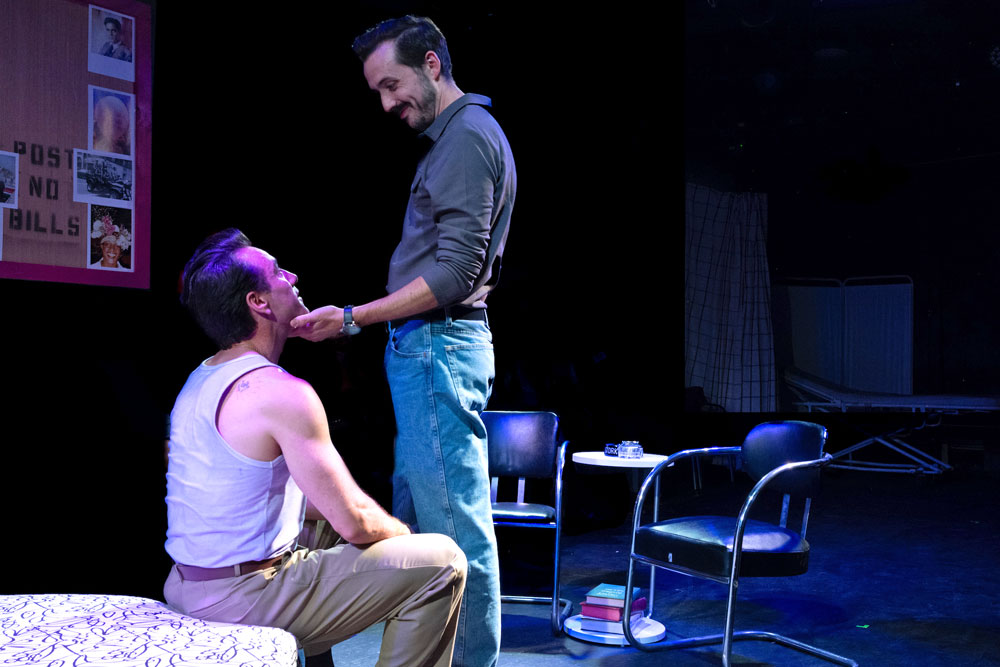Until you confront it, it’s sometimes hard to understand what it means to read or listen to the language and voice of a southern writer. Few are as extraordinary as Tennessee Williams whose plays plunge into the human spirit and swirl with delicate words that seduce the ear and can cut with the accuracy of scalpels.
One of the best revivals of one of his biggest classics, A Streetcar Named Desire, was presented in London in 2014 at the Young Vic; baby sister of the highly esteemed 200-year-old Old Vic of Sir Laurence Olivier fame. Endowed with a sterling cast and a director as daring as he is brilliant, tickets to that Streetcar sold faster than any production in the theater’s history. It was later recorded and broadcast on British television as representation of the finest theatre the country has to offer. As a response to the covid-19 pandemic, the National Theatre placed the play on Youtube for global access for one week without fee. It ends tomorrow, May 28th.
It’s likely true that Williams drew heavily from his own experiences when he created his timeless and impossible to forget characters. But to understand them, to get the full measure of who they are, it’s best to see them from the vantage point and through the eyes of a gifted orchestrator of action. Benedict Andrews took on Streetcar the way a brash tamer of big cats marches into an ornate cage teeming with them. You can almost taste the danger hanging in the air and it’s not long before you’re sitting on the edge of your seat in focused expectation.
Alcoholism, sexual desire, violence and the trailing scent of madness often hang like charms from many of Williams plays and Streetcar is no exception. Because they lurk in so many modern societies, their presence in the play give it a contemporary texture; even though the story was written in 1947, more than seventy years old. An age better known for its puritanical primness.
Proud of its chameleon stage that can transformed in a hundred different ways as well as its mission to address the theatrical tastes of a young and diverse audience, the Young Vic’s slowly rotating set for Streetcar captured a sliver of New Orleans that looked and felt both genuine and fresh. What you sense is tropical heat; along with the languor and insinuated sensuality it induces.
If they can, people naturally turn to family when times get tough. If not for help, then for understanding. Blanche Du Bois was looking for both when she left her home in Laurel Mississippi, climbed on a streetcar in New Orleans and went to stay with her younger sister, Stella and her husband, Stanley Kowalski.
Born to the genteel trappings of position and taste; they’re the measures Blanche uses to define herself and how she measures others. Even when she’s destitute, she clings to the superficial vestiges of grandeur.
She tells her sister that she just needed to get away from the pressures she’s been under as a school teacher before eventually disclosing she’s lost the family’s last remaining legacy of substance, Belle Reve, the family’s sizeable land holdings and it’s imposing home. Vain, pompous, and conscious that her beauty is fading, Blanche is also spiritually lost. And slightly delusional. Berating her sister for marrying beneath her station, chastising her for living in a two room flat with only a sheet to act as a dividing wall, she goes on to reproach her sister’s husband, Stanley, for his brutish coarseness. When she calls him an ape, not realizing he’s listening to her tirade, she exposes her own lack of humanity.
Sex is not feared in this production and portrayed in a way that makes it seem as raw as it was sometimes intended and sometimes implied when it flew from William’s imagination and onto his typewriter.
It’s believed he created the character of Blanche as a role for his friend Tallulah Bankhead, a formidable actress credited with over 300 roles over a long and illustrious career. Also a southerner, Bankhead’s father cautioned her about men and alcohol when she moved to New York to pursue her acting career. Bisexual and willful, she’s said to have quipped “he didn’t’ say anything about women or cocaine”.
From the time it first graced the stage, actresses have long craved for the opportunity to play Blanche. Intelligence, strength and beauty permeated with inconvenient lust, lies and an unrealistic belief in magic. When done right, it’s an epic role. Gillian Anderson commands those elements of Blanche and more with an uncanny understanding in her Young Vic performance. Something broke in Blanche when the love of her life, an incredibly handsome man boy, killed himself because of the nature of his passions. Who knows how many lives have been squandered through similar bouts of self-recrimination. With Blanche, we can see how such an act alters, stunts and even corrupts the minds and hearts of others.
Sometimes in a play, words can get lost in the scenery. The set can be so beautifully or artistically distracting, it can dilute the dialogue. Not here. The revolving stage stuck to the essentials, making the three main characters the focus; two of them adversaries confined in a tight space. As much as Blanche knows who and what Stanley is, he knows what she is, too. He doesn’t believe any of her reasons for her being there and taps into his network of friends to excavate a truth that emerges as something sordid, shameful and hypocritical. And his choice of punishment can only be described as brutal and barbaric. Ben Foster as Stanley steps up to the role; radiating the callous indifference of the jaded and the self-righteous. What we’re left to wonder is if there will be a cost for him to pay for destroying her.
Donations support the National Theatre or The Young Vic

![PrideArts [title of show] Raining Gold](https://rowgseat1.com/wp-content/uploads/2024/09/a53939222075_ceaf585bae_k.jpg)
